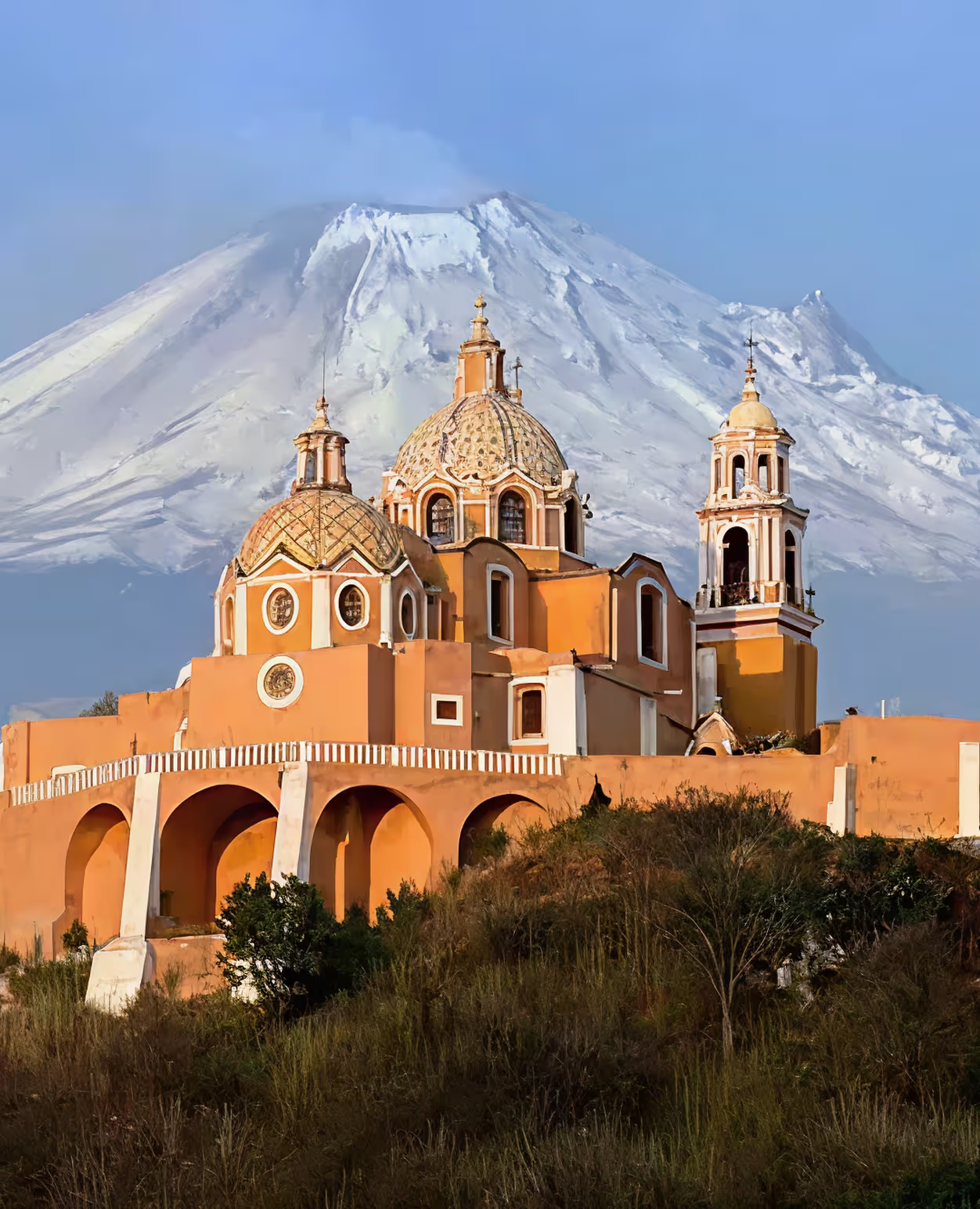Customize my trip
Design my trip




January is one of the favorite months for tourists to choose Mexico as their travel destination due to warm weather, pleasuring-giving beach time, and the opportunity to participate in grand festivals happening in January. Be it gaining pleasure from whale watching on the Pacific Coast, exploring the jungle to reach Edward James Castle in San Luis Potosi, or simply going surfing in the vibrant town of Sayulita, all these enthralling experiences and adventurous opportunities make the traveling conditions ideal for explorers, adventure travelers, cultural lovers, and even families.
Moreover, if you are a history enthusiast, or even not, get a chance to explore the rich and knowledgeable history of the Mayan people in Merida and marvel at the ancient Mayan pyramids and temples while walking through the scenic settings.
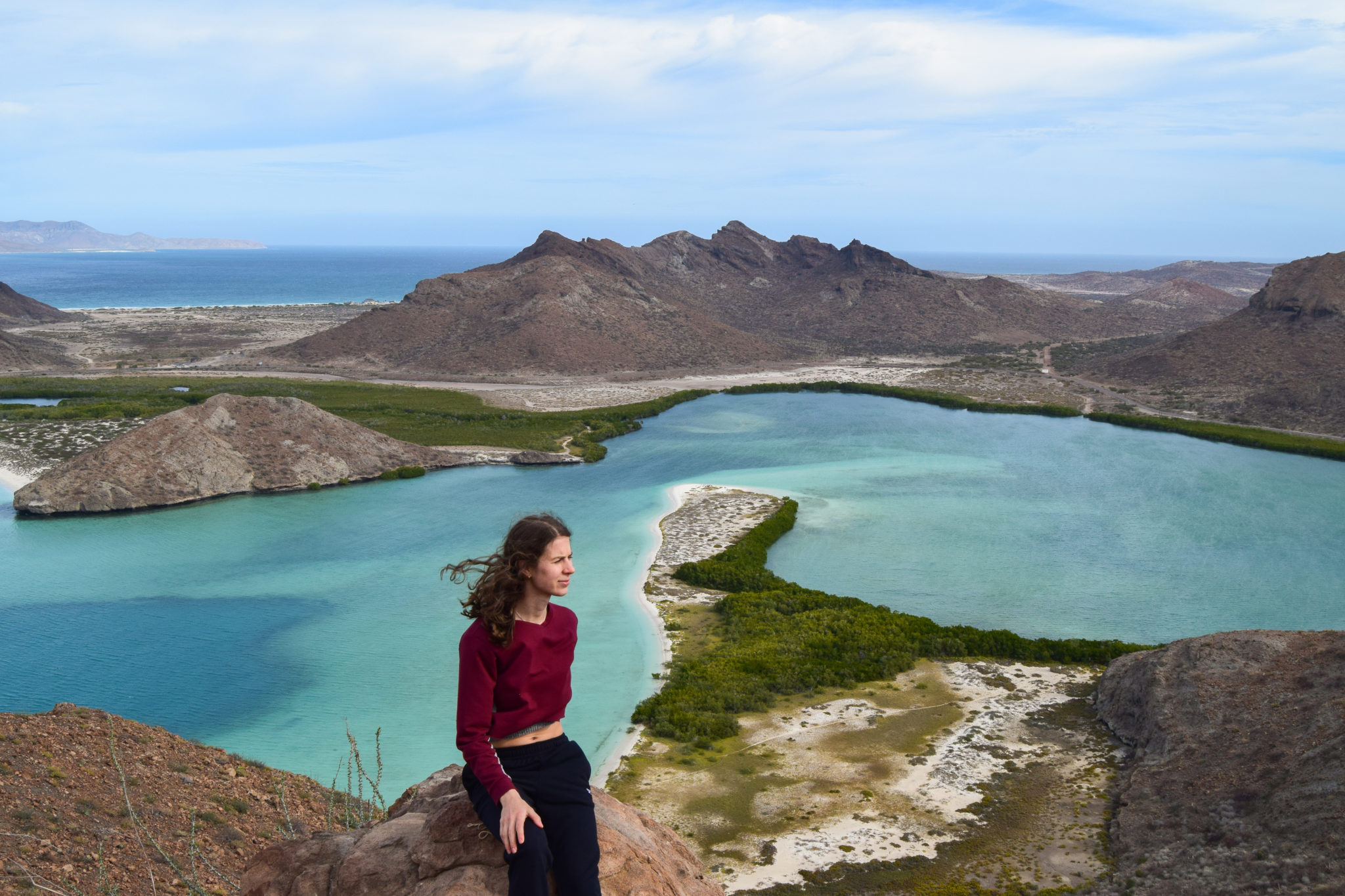
January is a well-suited time for those travelers or tourists who want to enjoy dry and sunny weather as January is a part of Mexico’s dry season. In contrast, the period between May and October is marked by the wet season in the south of Mexico. This period includes heavy rainfall and clears the increased humidity before it builds up again. The hurricane season from June to November can also affect the Caribbean coast, thus making weather not so suitable for tourists.
Other than the benefit of favorable weather in January, one can also be a part of numerous cultural events that take place in January. These events range from annual religious celebrations to art and music festivals. Although winter is usually a busy time for tourism as compared with summers, January is still often found to be quiet as compared with February and other months. Thus it is the best time for those people to visit Mexico who want to explore the famous areas of the country, yet avoid the crowds.
One of the primary reasons to choose Mexico for tourism is the opportunity to entice yourself with the action-packed events that happen throughout the month. Below, we would be discussing renowned events that you must wish to explore in Mexico!
Also called Epiphany and locally known as Día de Los Reyes, this event happens in early January – 6th January. It’s a mega-event that is celebrated widely by Mexico. It commemorates after the Christmas season and is one of the most significant events across the country. This event happens in remembrance of three Magi from the Christian Christmas story, who were said to present gifts to Jesus, who was still a baby at that time. Thus, in this event, children are offered gifts while friends and relatives gather to celebrate the event by sharing food and having a party.
The feast of San Antonio Abad takes place on 17th January. It is a Catholic event, organized in the honor of the religious figure, Saint Antoni. Saint Antoni is believed to be a monk who initiated the idea of going into exile or away from worldly belongings to renew your faith. This event is observed with church services that include the blessing of any animals brought to the church during the morning.
This event includes Mayan festivals that include a celebration of the discovery of fire and a jungle walk.
At the end of January: The event takes place in the town of Sayulita on Riviera Nayarit, usually during the last two days of January. It lasts for around lasts for five days. This festival attracts film, music, food, tequila, and surf lovers in particular. People also enjoy things like tequila and food pairings, live music, private film screenings, and much more during the event.
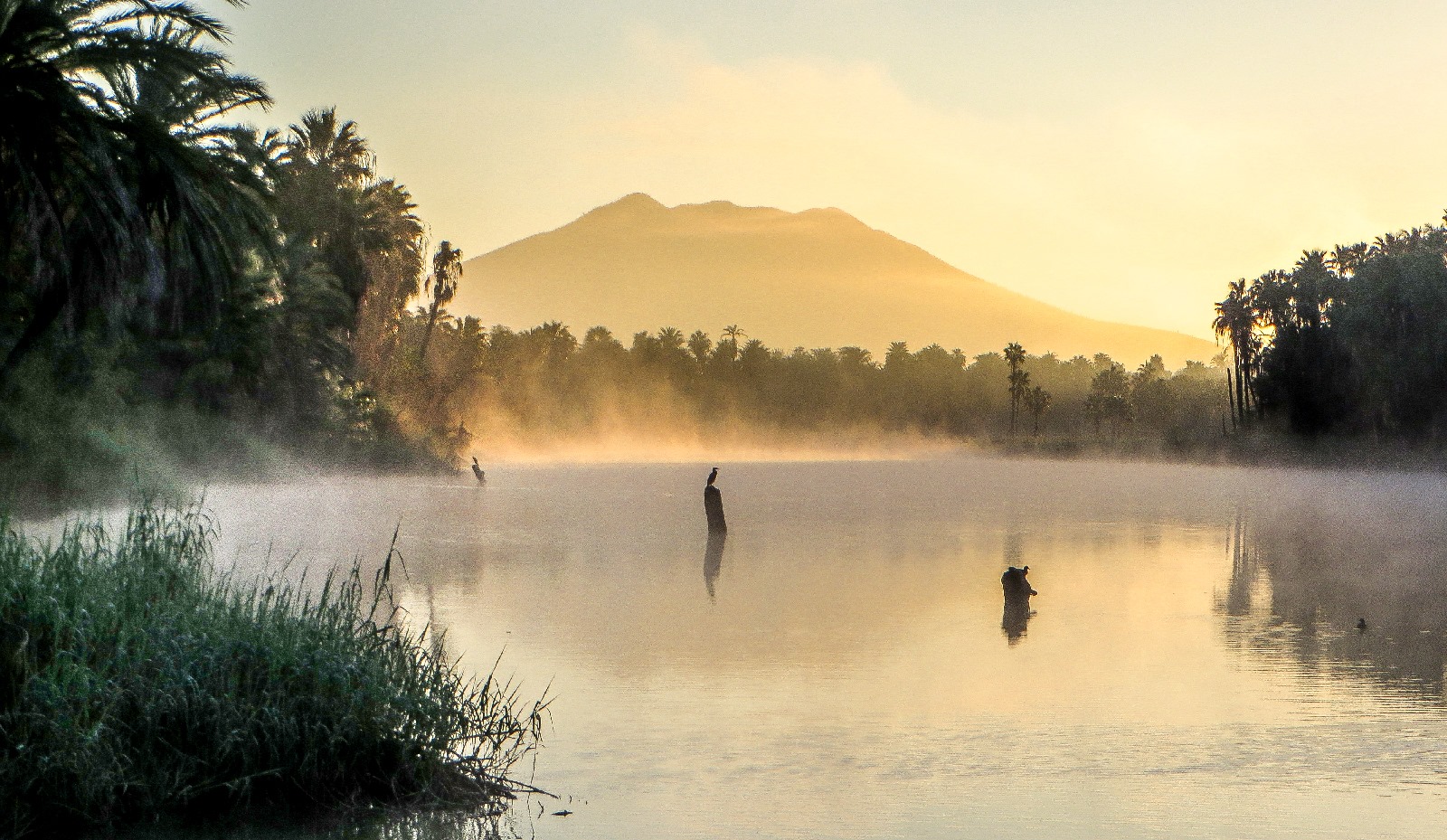
Also known as Merida Fest, this event happens from 5th January to 27th January. This event coincides with the founding of the city on January 6, 1542, and people from all over Merida come together to celebrate the event. There are several entertaining events like concerts, cultural events, art exhibits, food tastings, and theatrical presentations.
Also known as Alamos FAOT Music Festival, it happens on the third Friday of January. This festival is considered one of the main cultural events in Mexico and usually happens for a week. Often, over 100,000 people are seen to be engaged in diverse music performances and exhibitions of art. Opera singing chamber music is one of the most liked activities of the event, which attracts people from across countries. Another primary event is where honor is given to Alfonso Ortiz Tirado, who was a doctor, singer, and philanthropist from Alamos.
This festival is organized in Chiapas from January 8 to 23. This mega event is a folk and religious festival, showcasing the esteemed history and robust culture of the country. In this event, beautiful processions and dancing throughout the Chiapa de Corzo state take place where one can witness participants wearing colorful clothes and masks. Moreover, The Dance of the Parachicos is also a part of the Intangible Cultural Heritage of Humanity by UNESCO.
This is also an important event to watch where millions of beautiful monarch butterflies that reside in Mexico begin their journey to the north of Canada. Watching butterflies flying together is an aesthetic view for anyone who loves wildlife.
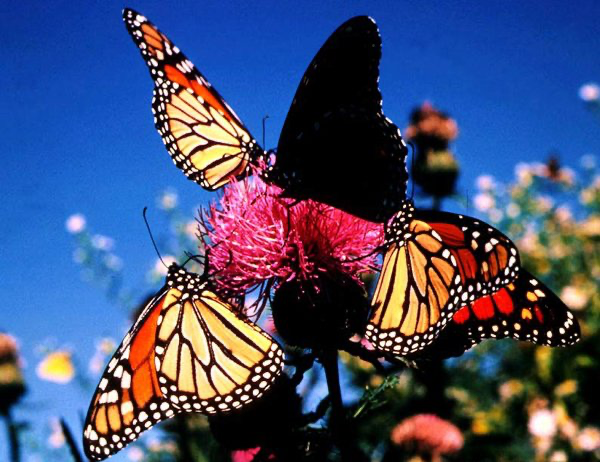
January is a well-suited month for water-based activities including boat tours. We will be discussing a range of activities that you can do during your travel to Mexico.
The weather conditions make January one of the best months for whale watching in Mexico, as there is a huge chance during this month you can see this incredible animal on the Pacific coast, mainly in Puerto Vallarta. Although many people spot whales from the shore, there is an opportunity for you to spot whole groups of whales by taking a boat tour out into the sea, where mother humpback whales and their calves come to swim and display a phenomenal view while jumping above the water. You can also witness whale babies that are born in this area. And remember to the flea markets of Old Vallarta, which is in the neighborhood.
Moreover, in the Baja California Peninsula, you can also find numerous whales in January as this is the time when they are arriving there. At this spot, tourists often spot gray whales that are renowned for their friendly nature which is why they are called “friendlies.” These whales are believed to be curious about humans and often move close to the boat in which people are moving to see people. Other types of whales that are frequently found here include the minke whale, the blue, long-finned pilot, and sperm whales.
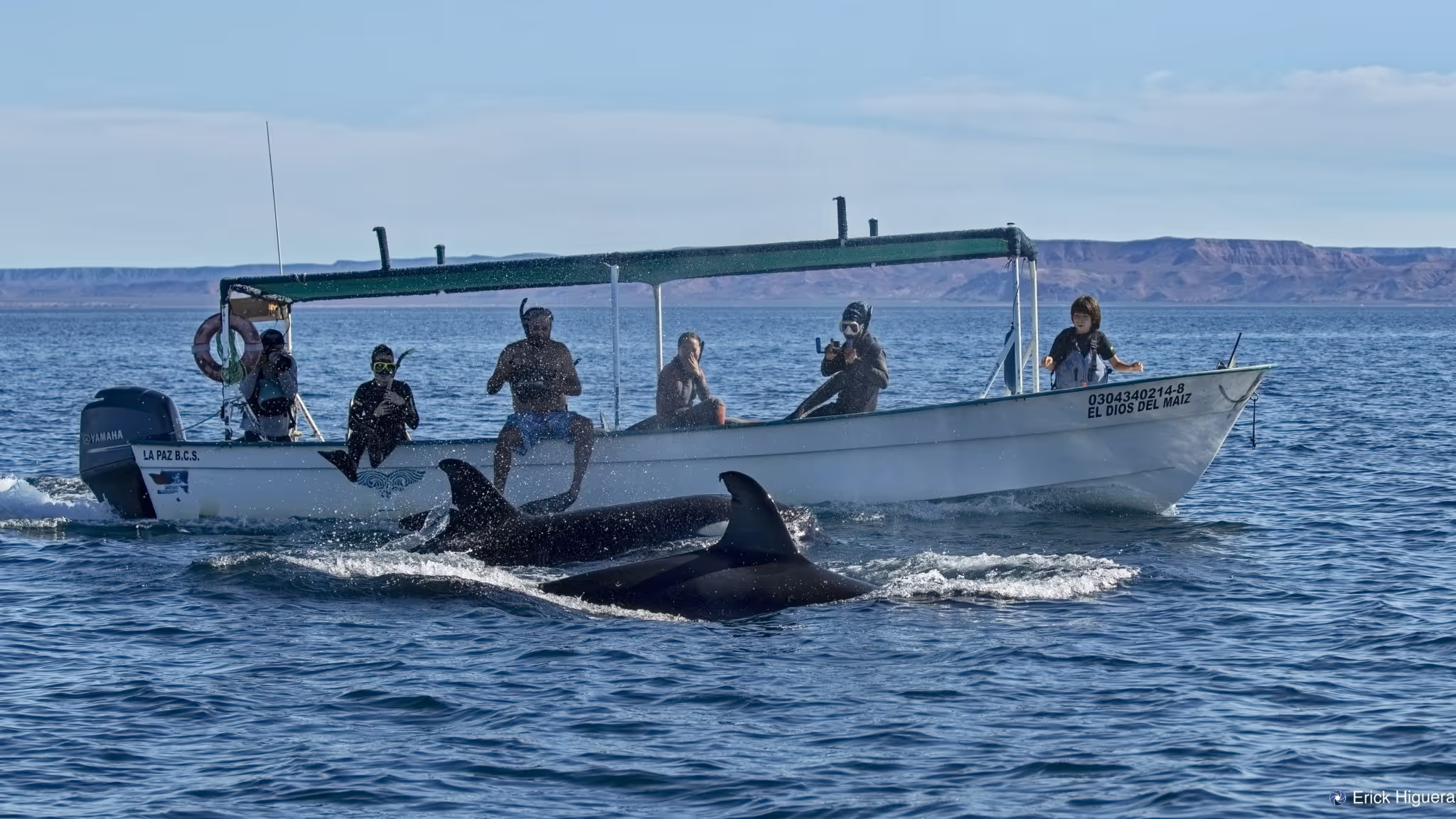
As mentioned before, The Edward James Castle is located in central Mexico in San Luis Potosí. It is often recommended to visit this wonderful place when the weather is relatively cooler. The castle is encompassed by an 80-acre garden and possesses several sculptures and a maze, along with numerous notable and aesthetic natural waterfalls.
On the Pacific coast of Mexico is located Sayulita, which is a town that has long been known as one of the best beaches for water activities like surfing. January is specifically a great time of the year to visit Sayulita and witness some of the brilliant waves that land on the beach. Different types of people can be found here; those who are very professional at surfing and those who just want to sit and witness the amazing view of waves in the sunshine, thus making it a very relaxed place. Moreover, there are plenty of beaches which means this place is not affected by crowds and everyone can get an opportunity or room to either surf or just sit back and enjoy the view.
Another popular and must-to-go place is the Reserve in Michoacán state, which is only 208 miles or 129 km from Mexico City. Every year from around November to February, millions of Monarch butterflies migrate here from Canada, making this month a great time to visit. Not only the views, but you can also enjoy the pleasant weather. This site is also listed as a UNESCO World Heritage Site and considered to be worth experiencing in travels to Mexico.
Other than these places, you can go sightseeing in Mexico City where quality beach time can be enjoyed, especially if you just need to relax. If you move north, particularly Copper Canyon, you can also experience great hiking adventures and can even plan a skiing trip if you are interested.
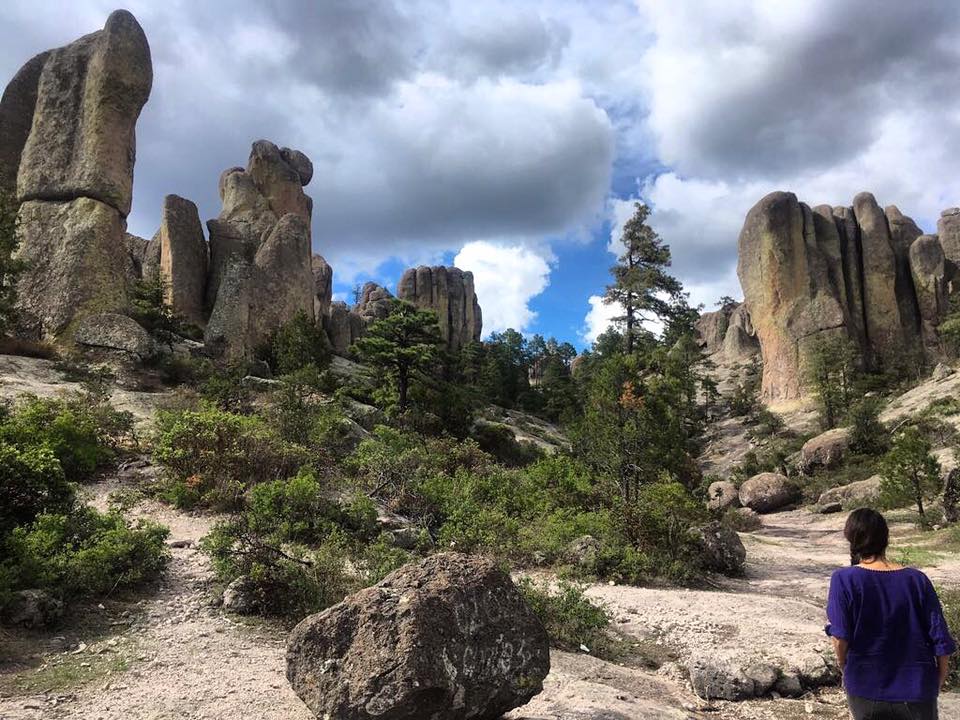
There are dozens of places to go in Mexico as a tourist. Below we would be discussing some of the most appealing places which you must incorporate in your travel itinerary.
The east coast and the Pacific Coast attract a number of tourists and are some of the best places to visit in Mexico in January. If you want to enjoy warm weather, cities such as Cancún, Merida, and Yucatán are well-suited for you. Also, several festivals and events are happening on the east and Pacific coasts. Speaking of Merida, it is the largest city on the Yucatán Peninsula. A primary attraction there is a three-week-long festival which happens in January. This event celebrates the foundation of the peninsula with happening events like musical concerts, fireworks, and theatre exhibitions.
The Riviera Maya is one the biggest tourist attractions on Mexico’s Caribbean coast and attracts tourists who want to spend their holiday relishing stunning beaches and dynamic towns. A strongly suggested activity to do in this part of Mexico is to hire a car for a road trip up and down the coast. This idea is loved by tourists due to the long road in the route that joins together all of the attractions in the Riviera.
Other than the views of beautiful beaches and lively nightlife, this region is also popular for containing several sites of Mayan archaeological ruins that provide vast knowledge to tourists on the ancient history of the region. Other places to visit are the Reserva de la Biósfera Sian Ka’an which contains plentiful endangered species within the wild, rugged landscape. Although the center of The Riviera Maya is known as a party destination, you can explore much more if you embark a little further than the center.
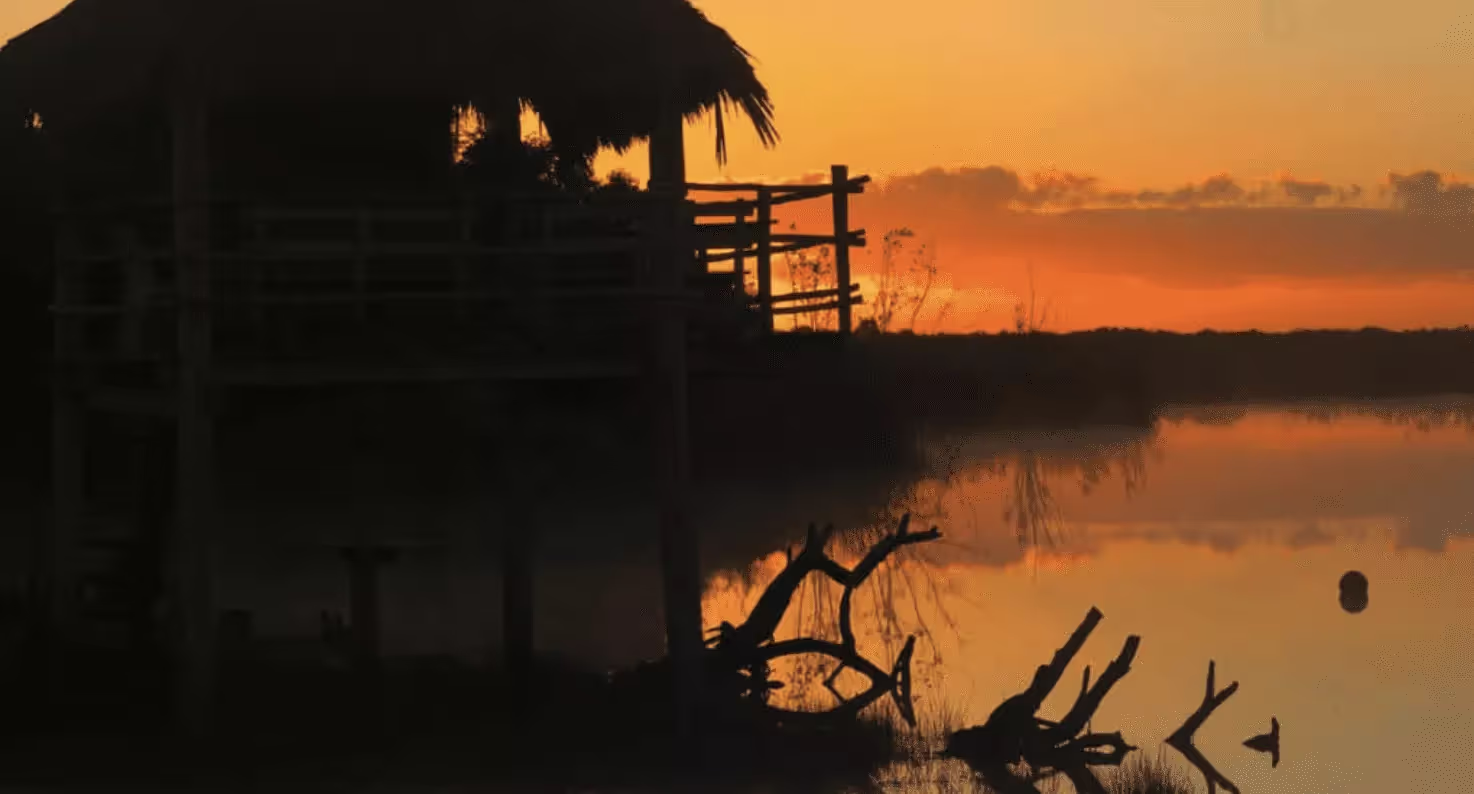
If you love visiting coastal sites, another coastal experience that is less rugged and more refined can be found in the great city of Cabo San Lucas which is located in the south of the Baja California Peninsula. This place once used to be a quiet fishing village, where only a few locals used to reside. However, due to its immense beauty, over the years this place has attracted a number of tourists and become an elegant destination for a holiday spot who wish to enjoy their vacation enjoying the serenity of beaches. Several urban attractions and surrounding landscapes can also be found in this area.
Cabo San Lucas is also famous with tourists for its gigantic marina and deep-sea fishing. Here, you can find delicious fresh seafood to taste. When the weather is warm in January, watersports are also particularly prevalent. Other than this, you can explore the whole city comprising of several shops, bars, restaurants but such places are usually crowded.
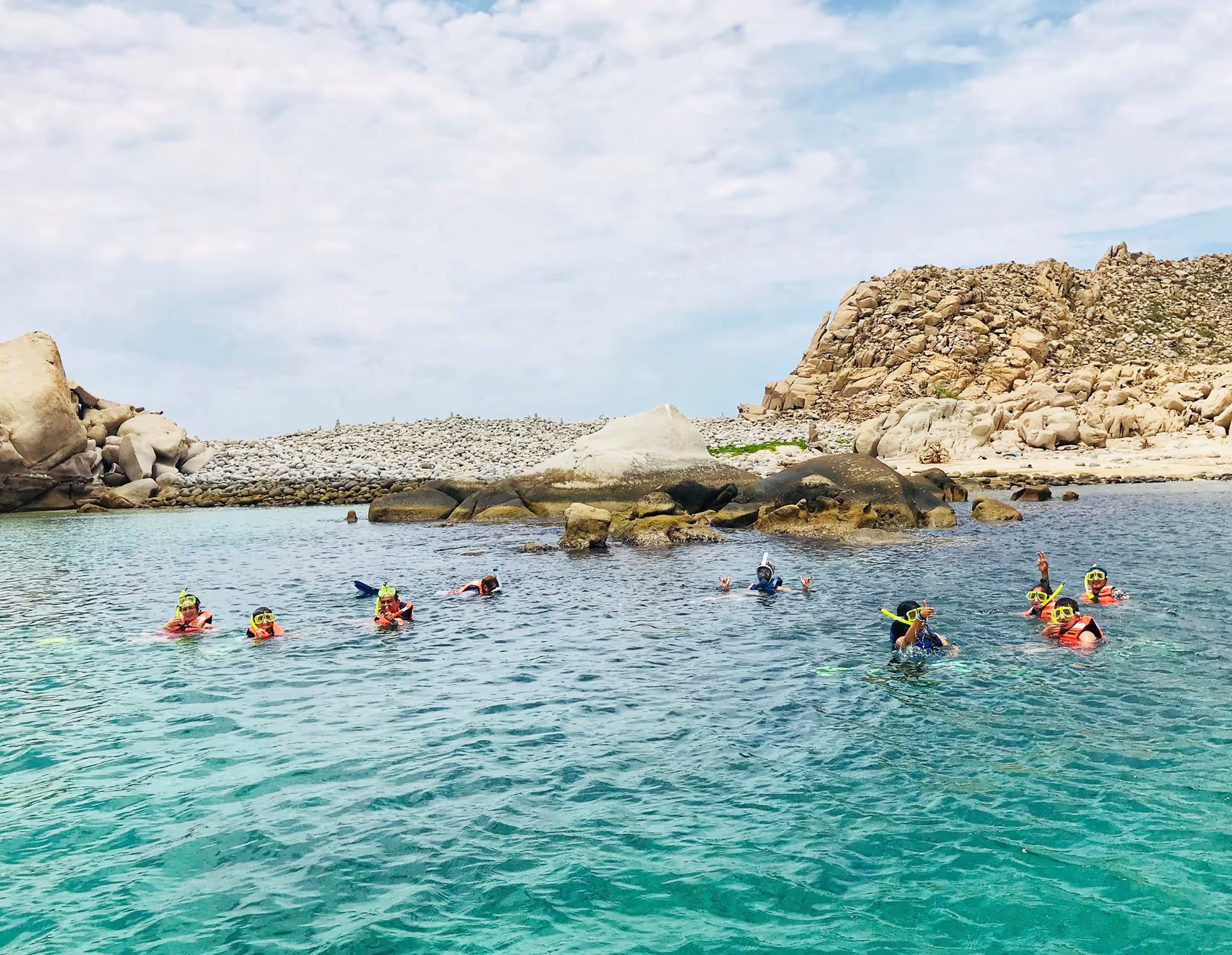
Here, you will also find the famous Land’s End – a group of rock formations that extend into the ocean. These massive rocks have been engraved by years of water and wind corrosion and contain Roca Pelicanos, Los Frailes, and El Arco. There is also plentiful marine life here in January such as mako sharks, sea turtles, and dolphins.
As briefly mentioned before, here you will find an exciting castle maze—the Edward James castle, which is surrounded by a jungle. This castle attracts tourists as it is home to around 35 sculptures with an 80-acre garden. Sir Edward James, a popular historical figure in Mexico, is said to be building this castle for 40 years when he died. It is one of the most exhilarating places to visit in Mexico, you can stay here.
The main city is also a brilliant place to visit in January. Given that the weather is warm and pleasing, there is a lot to see and do during the month in Mexico City for sightseeing. Soumaya Museum is one of the main attractions which contain around 66,000 pieces of Central American and European art. It attracts tourists who wish to explore different cultures. If you move to Biblioteca Vasconcelos which is a huge library, you can witness one of the world’s biggest libraries, surrounded by lush gardens. The library encompasses almost an area of over 410,000 square feet.
If you have an adventure-seeking soul, you should go to Chiapas and must visit the archeological site, Chiapa de Corzo. Located in southern Mexico, Chiapas comprises mountainous highlands and dense rainforests. You can also explore Mayan archeological sites and Spanish colonial towns in the surroundings.
Mexico experiences a dry season in January which is why January is known as one of the best months to visit this destination. Rainfall is almost absent in this period and temperatures varies in different regions. On average, temperature ranges between 75-85 °F. In the southern and central parts, the daily mean temperature is about 75-80 °F. The south and center of Mexico are incline to be warmer in January whereas areas in the north tend to have slightly lower temperatures and witness a colder wind all over the month.
This is an attractive and well-known winter destination, known mostly for hiking in the mountain valleys, and the opportunity to go on a ski trip. In the north, the temperature usually gets chillier, especially in Copper Canyon. The northern area often experiences colder winds, with temperatures plummeting to 45-60 °F in some areas. However, the climate variation is high in this region, so it is recommended that one should check out the latest weather forecast for the specific destination they intend to visit.
In central Mexico including the main Mexico City, a temperature of around 75 °F can be expected during the day, while a temperature of 60-65 °F can be expected during the nights.
Cancun is usually warm in January with temperatures on average between 77-82 °F, and on the Pacific Coast, it is around 80-90 °F.
The renowned cities Yucatán and Ixtapa experience approximately 85-90°F, while Acapulco is a bit chillier. In Baja California, the temperatures are around 70-80 °F.
The mean sea temperature in Mexico in January varies depending upon the region one is visiting. Coldwater currents impact some parts of the ocean which leads to low temperature. In general, the sea temperature is expected to move between 20°C and 25°C throughout the country in January. This might feel a little chilly but the temperature is very enjoyable once you are in the water.
Although January is part of Mexico’s dry season in which little to no rainfall is experienced, there is an average of around 7 days of rain across the country during January, with some areas of Mexico being more disposed to rainfall than others. However, even if rainfall happens during your vacation, it is very unlikely to last long and sunshine would soon be back.
In January, there is average sunshine of 8 hours a day in Mexico, which specifically appeals to the tourists who visit the country from a part of the world that experiences winters at that time. The usual sunrise time is around 7.15 am while sunsets happen between 8 pm and 8.30 pm.
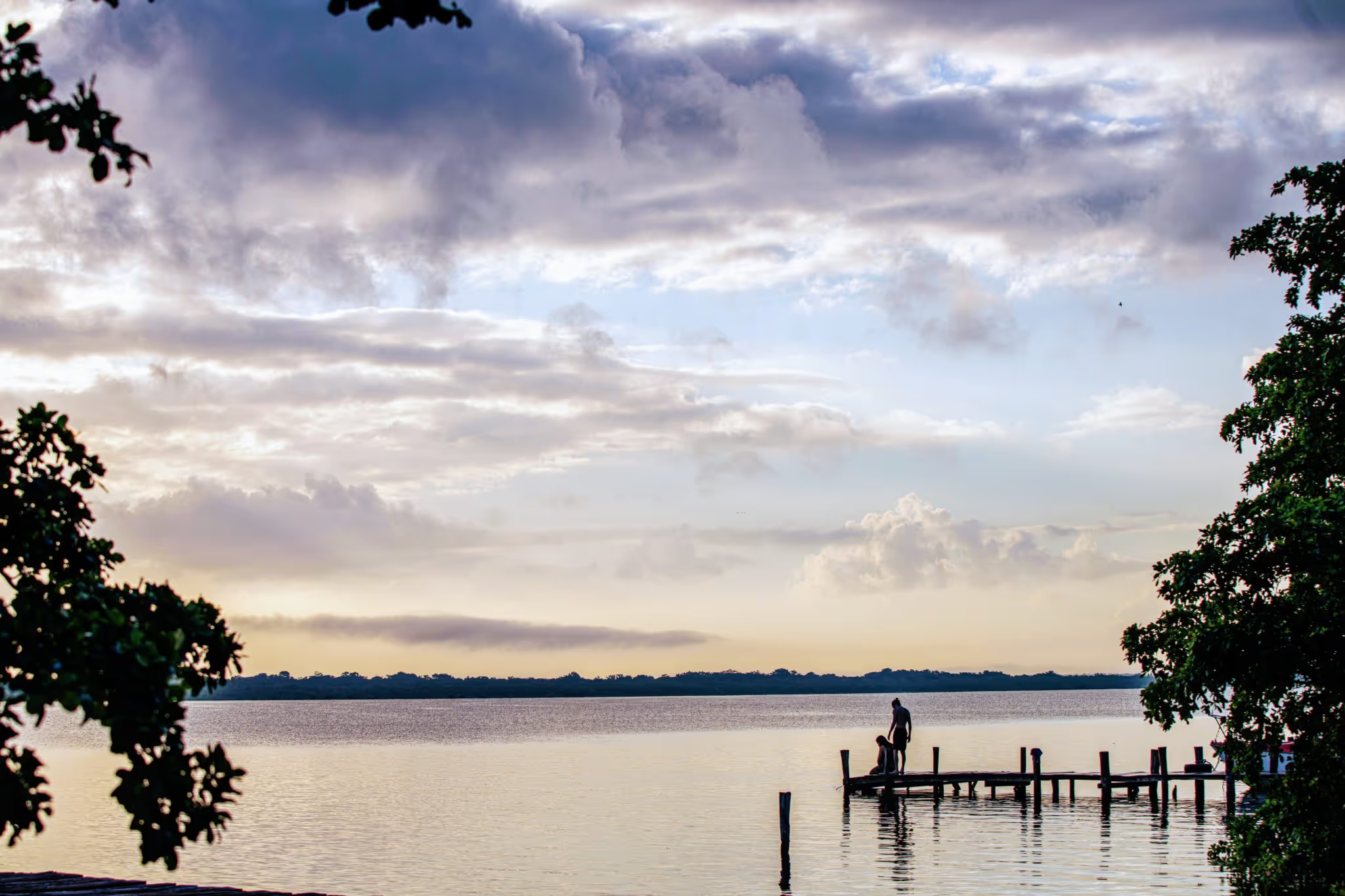
Favorable conditions like warm weather and a number of cultural events happening in Mexico makes January one of the best, yet popular months to visit for travelers across the globe. Despite this, Mexico is still not as busy in January as it is in December and February. Thus January is a great time to travel. Moreover, it is easy to find budget-friendly deals on accommodation and flights during this month.
Areas like Cancún and Yucatán might be a bit more expensive as compared with Mexico City, but still not as expensive as they are in December and February. Yucatán, Acapulco, and Cancún also get crowded as a lot of people from the Northern Hemisphere countries prefer going to these places on the Pacific Coast to escape the cold weather of their countries.
Mexico is widely known for its food. But the reality is that there is much more to explore in this amazingly, lively country. If you are seeking adventure or if you possess an interest in history or sports, or even if you are a keen shopper, Mexico’s bizarre towns, cities and regions will provide you with an unforgettable experience. Lastly, do remember that January makes the perfect combination with all other features of Mexico due to the perfect hot and sunny conditions that can make you enjoy everything the country has to offer at an even higher capacity.
